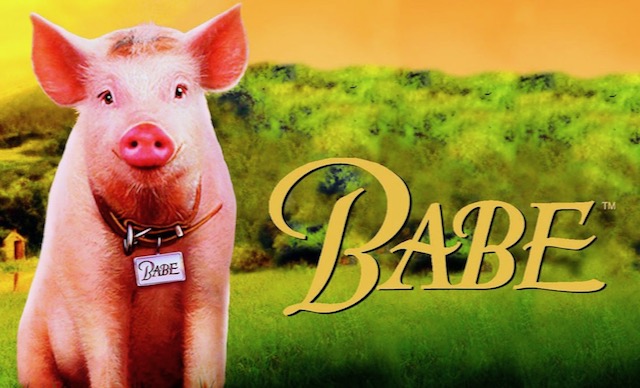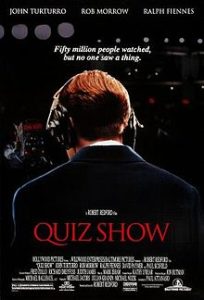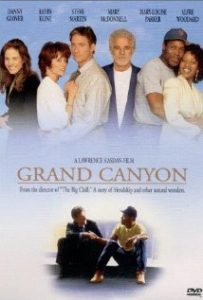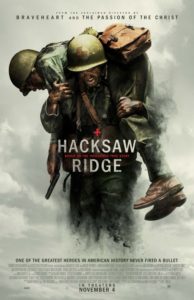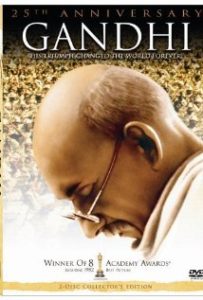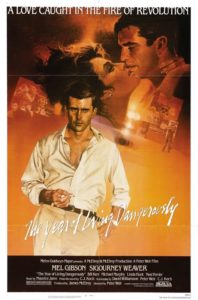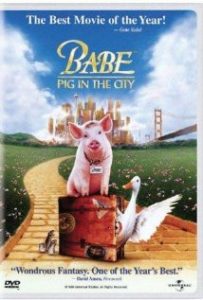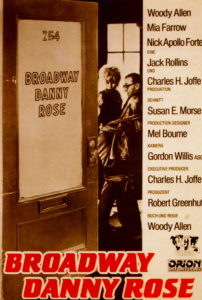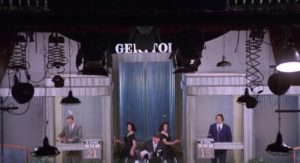
You are invited to respond with your own observations, and possibly with a film that you think will add to our faith conversation. This will make the series more than a monologue and benefit us all in our walk with Christ toward the Cross and Resurrection. Those of you leading other believers will thus find a rich trove of film and Scriptures to share in your teaching and preaching.
Each title has an embedded link that will take you to a full review of the film.
March 10, 1st Sunday in Lent.
Then Jesus was led up by the Spirit into the wilderness to be tempted by the devil. He fasted forty days and forty nights, and afterwards he was famished. The tempter came and said to him, “If you are the Son of God, command these stones to become loaves of bread.” But he answered, “It is written, ‘One does not live by bread alone, but by every word that comes from the mouth of God.’”
Matthew 4:1-4
Like all of us, Jesus went through temptation. Unlike Mark, Matthew and Luke go into details, and they show that temptation comes (or is placed by Satan) at our point of strength, not, as you might think at our weak point. Jesus is given great powers, and he is tempted to use them for himself rather than for others. It is not that he is weakened by his long period of fasting in the desert, but that he is tempted to end the fast by using his power to turn the rocks into loaves of bread in the first temptation. In a similar way, a scholar in Quiz Show is tempted to do good by agreeing to a devious scheme to get rid of the current unpopular champion. On “Twenty-One” Herbert Stempel, a brash Jewish worker from Queens, seems unbeatable until Charles Van Doren, son of Pulitzer Prize winning poet Mark Van Doren is recruited. When the producers offer to provide the answers in advance, Charles declines at first, but when it is pointed out how much good it would do for fellow intellectuals and college professors if he became famous because of the show, he gives in. Eventually, of course the deception is discovered.
Every day there are temptations, and Jesus shows us the way to overcome them. It is not by our strength, for should we turn down something tempting, we too easily feel proud that we did, and stumble into sin. Note that in this and the other two temptations, he quotes the Scriptures. Have you read enough in them to gain their wisdom and strength?
March 11
Pray for the peace of Jerusalem:
“May they prosper who love you.
Peace be within your walls,
and security within your towers.”
Psalm 122:6
The wolf and the lamb shall feed together, the lion shall eat straw like the ox; but the serpent—its food shall be dust! They shall not hurt or destroy on all my holy mountain, says the Lord.
Jesus prayed “for the peace of Jerusalem” and wept over it because it failed to heed his call to live the way of peace. He might well do so in the city depicted in Grand Canyon, set in Los Angeles, where instead of angels hovering over the city, we see in scene after scene police helicopters on patrol. Divided into hostile factions by race and economics, one scene leads toward the world where “the wolf and the lamb shall feed together.” Well off lawyer Mack is stranded in a dangerous warehouse district one night when his fancy car breaks down. As he anxiously calls for a tow truck a car loaded with black youth drives slowly by. A few minutes later they have turned around and stopped at his car. In a tense exchange they mock him, their leader demanding that he get out of the car. When he stalls, the leader threatens him. Just then the tow truck arrives. The camera closes in to show a boot and a leg clad in blue jeans. A full shot reveals that the driver is a black man. He slowly walks toward the group, addressing Mack. The gang leader protests, and Mack takes him aside, telling him that this isn’t supposed to be the way things are. He politely asks the thug to grant him a favor, to be allowed to service the man so they can all go their ways. After a brief reply the gang leader consents, signaling his friends to get back into their car. Mack thanks his rescuer, learns his name is Simon, and from this a friendship grows that leads to him helping Simon’s teenage nephew escape the ghetto.
Simon could have driven on by when he saw the danger, but he didn’t. He probably wasn’t conscious of the Biblical story of the Good Samaritan or Isaiah’s parable of hostile animals living in harmony, but he nonetheless embodied them in his kind act that even impressed the gang leader enough that he gave up his prey. We may not find ourselves engaged in such a dramatic event, but we might come upon someone in need that is inconvenient for us to render help. Will you remember Simon and see in his kind act consequences for good? What have you done for another to bring “peace…within your walls”?
A guide for this film is in my book Films & Faith: Forty Discussion Guides.*
March 12
“Blessed are the peacemakers, for they will be called children of God.
“Blessed are those who are persecuted for righteousness’ sake, for theirs is the kingdom of heaven.
Matthew 5:9-10
Desmond Doss was raised in an Adventist Church where he was taught to take the Bible literally. This meant not just the usual seven-day-creation creation story, but the ethical teachings of Jesus as well, including the commandment to “turn the other cheek.” When WW 2 broke out, he wanted to serve his country, not with a gun, but as a medic. The Army denied his request, and so during basic training when Desmond was ordered to pick up a rifle, he refused despite the angry orders and insults of the D.I. In the barracks the men taunt him as a coward, and in one of the most memorable scenes in Hacksaw Ridge, a burly soldier hits him hard on the cheek, and Desmond stands there without trying to defend himself ready to suffer a second blow. After a near court-martial and intervention by his father, Desmond finds himself serving as a medic during the Battle of Okinawa. He ascends the 400-foot Hacksaw Ridge with his comrades and is soon tending to their wounds. When they have to retreat down the ridge at night, he stays behind to find the wounded left behind and bring them to the edge for lowering down. During the see saw fighting atop the ridge, lasting several days, Doss risked his life countless times tending to the wounded and dragging them to the edge for lowering to safety. He suffered several wounds himself and at last was evacuated. It is estimated that he saved between 50 and 100 men. Needless to say, those who had called him a coward were quick to join the campaign to recommend him for a Medal of Honor.
It will always be difficult to follow Jesus command to respond to violence with good will. “Turning the other cheek” is risky, and yet those who have done so, whether physically or symbolically by refusing to return insults but responding instead with words of friendship and concern, find the blessing that Jesus promised to peacemakers. Do you dare to accept Jesus at his word?
March 13
A dispute also arose among them as to which one of them was to be regarded as the greatest. 25 But he said to them, “The kings of the Gentiles lord it over them; and those in authority over them are called benefactors. 26 But not so with you; rather the greatest among you must become like the youngest, and the leader like one who serves. 27 For who is greater, the one who is at the table or the one who serves? Is it not the one at the table? But I am among you as one who serves.
Luke 22:24-27
When even at the last supper the disciples argue over who is the greatest, Jesus rebukes them, telling they must become servants. He would have approved, I believe, of the great liberator of India’s conduct, as depicted in Gandhi. Visually we see by his clothing how Gandhi came to give up what his society saw as a status symbol. As a lawyer in South Africa Gandhi wore the tie and jacket of the well-off Englishman, but after leading the protest against the racist pass laws, he began to wear the middle-class Indian garments of a turban, white jacket and pants. Back in India the dhoti, the loin cloth worn by untouchables became his usual dress. In his ashram he expected everyone to take a turn at cleaning he latrine—this include himself. We see in the movie that he becomes very angry with his wife when she refuses to take her turn because she still believes it is the work for untouchables. At a gathering of Hindu and Muslim political leaders in the home of Mohamed Ali Jinnah, a servant brings in a tea tray laden with refreshments. Before the man can serve, Gandhi takes the tray and assumes the role of tea server.
Jesus and Gandhi set the example for leadership, but can we follow? In a society that teaches self-assertiveness and elects leaders who use their positions to enrich themselves and extend their power, becoming a servant leader might be as as hard as turning the other cheek. Where and whom can you serve?
A guide for this film is in my book Films & Faith: Forty Discussion Guides.*
March 14
The Year of Living Dangerously
What shall we do then?
Luke 3:10b (KJV)
Is not this the fast that I choose:
to loose the bonds of injustice,
to undo the thongs of the yoke,
to let the oppressed go free,
and to break every yoke?
Is it not to share your bread with the hungry,
and bring the homeless poor into your house;
when you see the naked, to cover them,
and not to hide yourself from your own kin?
Isaiah 58:6-7
Th title of the film refers to 1969, the last year of the despotic reign of Indonesia’s President Sukarno. Guy Hamilton, an Australian radio reporter on his first overseas assignment, lands at Jakarta’s airport and is met by the diminutive Billy Kwan, a photographer who had worked with Guy’s predecessor. Declining to take a taxi, the two walk through a market where peasants hope to sell cheap goods to those passing by. Guy seems unfazed by their poverty, so Billy says, “What shall we do then?” When Guy asks about this, Billy replies that it is a quotation from the 3rd chapter of Luke in which the crowd responds to the preaching of John the Baptist about what they should do. Billy goes on to say that $5 from Guy would make a big difference in the life of one of the vendors. When Guy responds with it wouldn’t make any difference, it would just be a drop in the bucket, Billy says that is a typical Western response. He sums up his approach to poverty with, “Well, I support the view that you just don’t think about the major issues. You do whatever you can about the misery that’s in front of you. Add your light to the sum of the light.” Later we learn that Billy is doing just that by bringing food, medicine and a little money to a single mother living in the slums with her sick child.
Guy is like many of us well fed Americans who feel besieged at times by so many requests from churches and charities wanting us to help the poor. We all have heard how poverty is so immense that there is little we can do to end it. Billy’s words about ignoring “the major issues” must be taken with a grain of salt, but his doing what he can “about the misery that’s in front of you” is a good start in alleviating the suffering of others. During this Season when we focus upon the life of Christ, what misery do you see in front of you? And what will you do then?
A guide for this film is in my book Films & Faith: Forty Discussion Guides.*
March 15
If your enemies are hungry, give them bread to eat; and if they are thirsty, give them water to drink; for you will heap coals of fire on their heads, and the Lord will reward you.
Proverbs 25:21. Quoted in Romans 12:20 by St. Paul, who added: “Do not be overcome by evil, but overcome evil with good.”
The most riveting scene in this animated film about a little pig named Babe takes place in a city of canals far from his farm home. While traveling with his mistress, Babe is left in a hostel that is willing to take in pets despite a law prohibiting it. Besides the little pig there are monkeys, apes, and an orangutan, all of whom resent the presence of a pig in the house. For various reasons all of the adults, including the innkeeper, have to go away, leaving the animals alone. When they do return, the food runs out. The hungry animals decide that some of them will need to go out in search for food, in spite of the danger of the nosey neighbors across the street seeing and reporting them. When Babe goes with the group, they trick him into entering a yard where two vicious watch dogs are chained to a stake. Babe barely jumps back from their attack. They pull so vigorously that the stake pops out of the ground, and the chase is on. Around and around the canal-lined streets they pursue the terrified little pig, their chains rattling. After a while one drops out, but the other keeps going. On the bridge in front of the inn Babe asks why, but the dog ignores him. Babe falls into the canal, and the dog dives after him. The little pig manages to swim to shore, but the dog’s chain and stake are entangled in the bridge railing, causing to dog to hang just above the surface of the water. Then the chain slips
A Guide for this film is in my WJK book FAITH & FILM: A Guidebook for Leaders.
March 16
The servant grew up before God—a scrawny seedling,
a scrubby plant in a parched field.
There was nothing attractive about him,
nothing to cause us to take a second look.
He was looked down on and passed over,
a man who suffered, who knew pain firsthand.
One look at him and people turned away.
We looked down on him, thought he was scum.
Isaiah 53:2-4 (The Message)
Like the servant in Isaiah Danny Rose is “a scrawny seedling” with “nothing to cause us to take a second look.” A Broadway talent agent, the acts he handles will never play on Broadway. He has to work hard to get them booked at resorts in the Borsch belt of the Catskills. They consist of a peg-legged tap dance, a one-armed juggler; a trainer whose parrot taps out on a toy piano “I Got to be Me,” and more. And yet like a shepherd caring for his sheep, Danny nurtures each one, inspiring all to use fully the meager talents they have. In the case of Lou, an alcoholic lounge singer, he selects his songs, tends to his wardrobe, concocts a special brew to bring him around after a drinking binge, and even how to toss his microphone back and forth in an alluring way. The most promising of his clients, he is even booked by Danny to appear on one of Milton Berles’ TV shows. Then, just as he achieves national fame, Lou will leave Danny for a more respectable agent handling higher class acts, as several others whom Danny has nurtured have done.
Watching this film enhances our understanding of Isaiah and of the Good Shepherd Jesus Christ. Isaiah 53 seems to have been a key Scripture in guiding our Lord to take up the cross. Danny and Jesus were:
“Looked down on and passed over,
a man who suffered, who knew pain firsthand.
One look at him and people turned away.
We looked down on him, thought he was scum. “
May we come to appreciate during this Lenten season just how much we have been nurtured and led into paths of service by this caring Christ.
A guide for this film is in my ReadtheSpirit book in Jesus Christ: Movie Star.
*Films & Faith: 40 Discussion Guides is out of print, but a few copies are still available from my office:. Contact [email protected]
